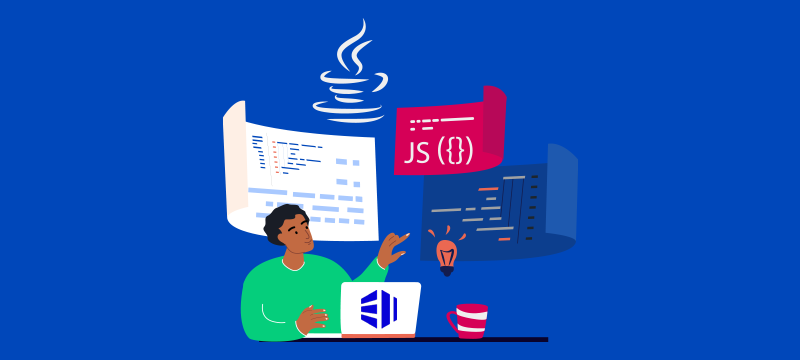When it comes to selecting a reliable and high-performing platform for software development, Java SE (formerly Java 2) has been one of the top choices for enterprises and individual developers for decades. In this post, we will take a close look at what Java SE is, what it is used for and the advantages that make it a prime choice for developers around the world.
Understanding Java SE
Java SE, or Java Platform Standard Edition, is the core foundation of the Java programming platform. It provides the necessary runtime environment and APIs to develop and run Java applications on desktops and servers. Originally created by Sun Microsystems and now under the stewardship of Oracle, Java SE has undergone various upgrades, each designed to enhance its functionality, performance and security. Java SE is designed to be platform-independent, which means that developers can write code once and run it anywhere – a principle popularly known as “Write Once, Run Anywhere” (WORA).
What is Java SE used for?
The primary goal of Java SE is to provide a consistent, stable and secure environment for applications. It serves as the base for various domains, including:
- Desktop GUI applications: Java SE contains the necessary libraries and functionalities, like JavaFX and Swing, to create rich desktop applications.
- Console-based applications: Whether you’re writing utility scripts or server-side applications, Java SE can be your tool of choice.
- Embedded systems: With its compact and efficient structure, Java SE can be used in devices that don’t feature high computational power.
- Server-side applications: Although Jakarta Enterprise Edition (formerly Java EE) is more tailored for enterprise-grade server-side apps, Java SE can handle simpler server tasks with ease.
Benefits of using Java SE
Now we’ve explained its various uses, here are the main advantages of adopting Java SE:
Platform independence
One of the most touted features of Java SE is its cross-platform capability. The idea is simple: write your code once and run it on any machine equipped with the appropriate Java Runtime Environment (JRE). This eliminates the need for platform-specific adaptations, ensuring more extensive application reach and simpler maintenance.
Rich libraries
Java SE comes packed with a plethora of libraries that assist developers in various tasks, ranging from data structures to networking and I/O operations. This reduces the need to reinvent the wheel and ensures that developers have a tried and tested toolset at their disposal.
Strong memory management
With its automatic garbage collection, Java SE manages memory extremely efficiently, reducing the chances of memory leaks which can be detrimental to application performance.
High security
Java SE has been designed with security in mind. Features like bytecode verification and runtime security checks ensure that applications remain shielded from various threats.
Scalability and performance
Over the years, Java SE has seen significant enhancements in performance. The Just-In-Time (JIT) compiler ensures that the Java code is compiled to native machine code, offering optimal performance. What’s more, with its robust multithreading capabilities, Java SE is well-suited for applications requiring concurrency and parallelism.
Wide community support
Being one of the most popular programming platforms, Java SE boasts a vast and active developer community. This means ample resources, forums and tools are readily available, making the developer’s job a much easier one.
Mature ecosystem
Java SE has matured over more than two decades. This is reflected in the stability of the platform, the wide range of tools available (like IDEs, debuggers and profilers), and the vast array of third-party libraries that augment Java SE’s capabilities.
Continuous improvement
Java SE remains a work in progress. With each new version, developers are introduced to features that simplify development, enhance performance and improve security – and there are new features every 6 months. The next update (at the time of writing) is Java 21, which will have 15 new features, including virtual threads, a generational Z garbage collector and a key encapsulation mechanism API.
Conclusion
In the world of software development, Java Platform Standard Edition (formerly Java 2) remains a key tool for developers. With its platform independence, rich set of libraries, robust security mechanisms and the promise of high performance, it caters for a wide range of application needs. So, if you’re an enterprise seeking to deploy scalable applications or an individual developer keen on making use of the continuously improving platform, Java SE is a highly popular and dependable option.
Whether your application development requires the flexibility, scalability and resilience of the cloud or the performance and control of the server environment you get with a dedicated server, eukhost delivers not just the latest infrastructure, but the tools, security and support you need to succeed. For more information, visit our homepage.



